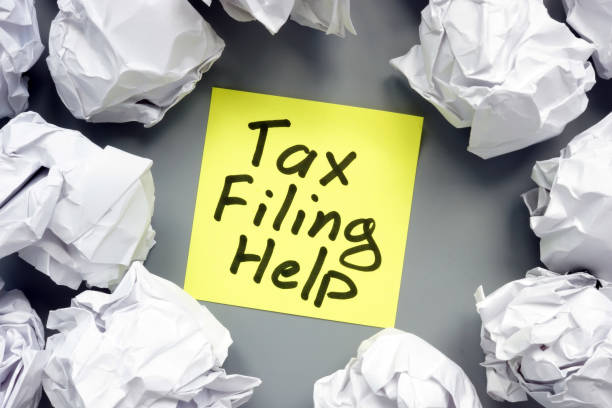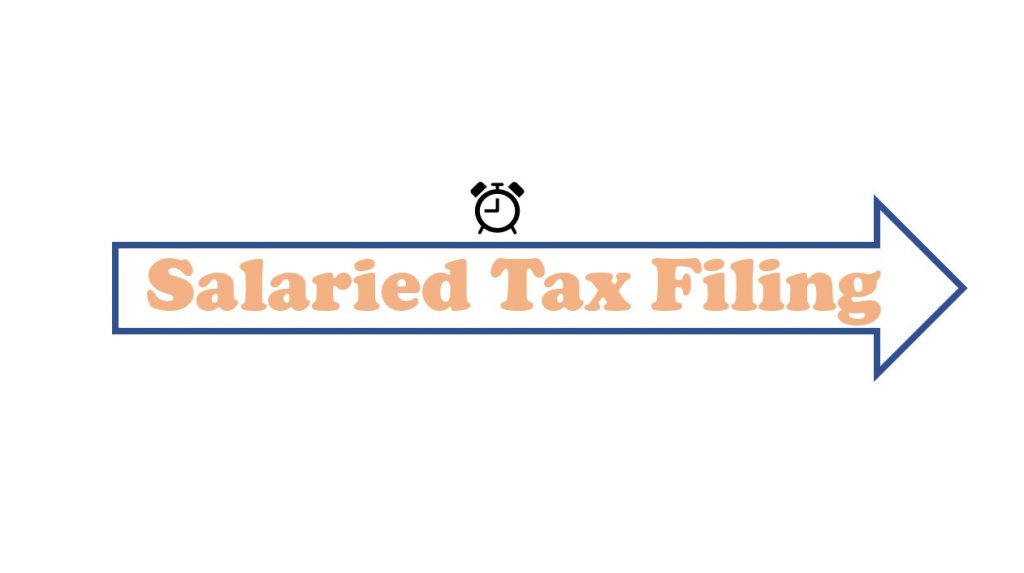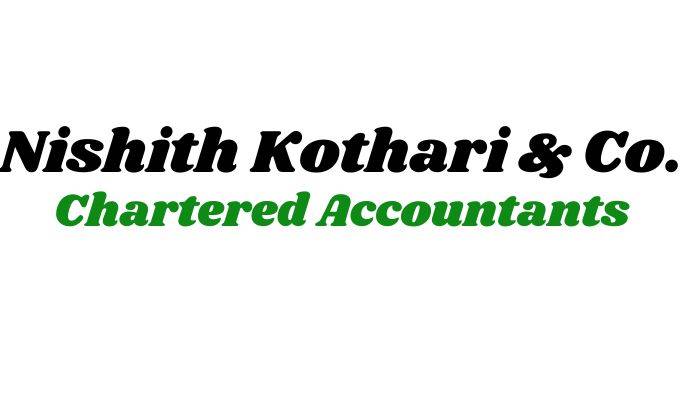Salaried Tax Filing easy guide F.Y. 2021-22

This article will help users to understand how a Salaried Individual can file his/her Income Tax Return(ITR). This will further include benefits of filing of ITR for Salaried Individuals, ITR forms applicable to salaried individuals, Prerequisites required for filing ITR by Salaried Individuals, Income Tax forms applicable to Salaried Individuals, Income Tax Slab Rates for Individuals for F.Y. 2021-22 and Revised Optional Slab Rates under section 115BAC for F.Y.2021-22.
The article will also give a brief idea of what comprises of Income for Salary as per Income and deductions from Salary in Income tax.
A detail circular on “DEDUCTION OF TAX AT SOURCE, INCOME-TAX DEDUCTION FROM SALARIES UNDER SECTION 192 OF THE INCOME-TAX ACT, 1961 DURING THE FINANCIAL YEAR 2022-23” was released by CBDT on 07 Dec, 2022. Refer link >> https://incometaxindia.gov.in/communications/circular/circular-24-2022.pdf
Salaried Tax filing is due on or before 31st July, 2022 for F.Y. 2021-22 and A.Y. 2022-23.
Logon to Income Tax website for Salaried Tax filing – https://www.incometax.gov.in/iec/foportal
ITR Forms applicable to Salaried Individual
Salaried tax filing of return would require individual to select the form which would be applicable to him/her based on sources of Income. ITR Forms applicable which can be used by Salaried Individual are as follows:
- ITR – 1: Individuals with a total Income of up to INR 50,00,000 having income from salaries, one house property, other sources, and agricultural income up to Rs.5,000 can use form ITR -1 (Sahaj)
- ITR – 2: It is applicable for those Individual whose total income exceeds INR 50,00,000. This person does not have profits or gains from business or profession. He has more than one house property and agriculture income exceeding INR 5,000.
- ITR – 3: ITR-3 can be filled by person if ITR-1,2 & 4 are not applicable to him. ITR -3 can be filed by individuals having gains from business & profession. He can have Income from Salary. No limit on number of house properties and agriculture income.
- ITR – 4: Individuals with a total Income of up to INR 50,00,000 having income from salaries, one house property, other sources, and agricultural income up to Rs.5,000 and have income from business & profession computed on presumptive taxation basis under section 44AD/ 44ADA/ 44E.
Who cannot use ITR – 1
- Person who is Director in any company
- Person who has held any unlisted equity shares at any time during the previous year
- Person who has any asset or financial interest in entity located outside India
- Person who has signing authority in any account located outside India
- Person who has income from any source outside India
- Person whose tax has been deducted u/s 194N
- Person whose ESOP payment or deduction of tax has been deferred
- Person who has brought forward loss or loss to be carried forward under any income head
Who cannot use ITR – 4
- Person who is Director in any company
- Person who has held any unlisted equity shares at any time during the previous year
- Person who has any asset (including financial interest in any entity) located outside India
- Person who has signing authority in any account located outside India
- Person who has income from any source outside India
- Person whose tax has been deducted u/s 194N
- Person whose ESOP payment or deduction of tax has been deferred
- Person who has brought forward loss or loss to be carried forward under any income head
Pre-requisites for filing Salaried ITR
Pre-requisite data which a salaried individual will required before filing of his salaried tax return which are as follows:
- User must be registered on e-filing portal
- Link Aadhaar Number and PAN on e-filing portal
- It is mandatory to have at least one pre-validated bank account
- Nominate pre-validated bank account for refund
- Valid mobile number linked with Aadhaar for e-Verification of ITR post submission.
- Obtain Form – 16 & Salary slips from Employer
- Interest Certificates from the Post offices and Banks
- Download Form 26AS and Annual Information Statement
- Tax saving investment proof
- Deduction under the Section 80 D to 80 U
- Home Loan statement from the NBFC or the Bank
- Bank Account Statements for relevant period
Forms applicable to Salaried Individual
| From Type | Who is required to submit this form and to whom | Usage |
| Form 12BB – Particulars/Evidences of claims by an employee for deduction of tax as per section 192 of the Income Tax Act, 1961 | This form is submitted by Employee to his/her employer | This form acts as a evidence proof or particulars of HRA, LTC, Deduction of Interest on home loan, Tax Saving Claims / Deductions on eligible payments or investments for the purpose of calculating Tax to be Deducted at Source (TDS). |
| Form 16 – Certificate of Tax Deducted at Source on Salary as per section 203 of the Income Tax Act, 1961) | This form is provided by Employer to his/her Employee | This form specifies details of Income of the employee, relevant Deductions / Exemptions and Tax Deducted at Source for the purpose of Computing Tax Payable / Refundable. |
| Form 10E – Form for furnishing particulars of Income for claiming relief under section 89(1) | This form is submitted by employee to the Income Tax Department for claiming the benefit of this section. | Section 89(1) is applicable if employee is in receipt of past salary, salary in advance or receipt of family pension in arrears. The amount gets deducted from the total salary. The details include arrears of salary, receipt of Advance Salary, Gratuity, Compensation on Termination and Commutation of Pension. |
Benefits for filing return by Salaried Individual
Key benefits for Salaried tax filing return by Salaried Individual are:
- Individual can claim refunds of TDS/TCS
- Individual can carry-forward losses from shares, house property, business (if any)
- Individual can submit the same as supporting loan documents
- Individual can avoid penalties, interest charges, if any.
Slab Rate for Individuals FOR F.Y. 2021-22 & A.Y. 2022-23 are –
In Salaried Tax filing of return for F.Y. 2021-22, Salaried Individuals have to pay taxes as per tax rates mentioned in table below, tax rates vary depending on age of the person:
| Age Up to 60 & Net total Income | Tax Rate |
| Up to 2,50,000 | Nil |
| 2,50,000 – 5,00,000 | 5% |
| 5,00,000 – 10,00,000 | 12,500 + 20% above INR 5,00,000 |
| Above 10,00,000 | 112,500 + 30% above INR 10,00,000 |
| Age greater than 60 less than 80 (Senior Citizen) & Net Total Income | Tax Rate |
| Up to 3,00,000 | Nil |
| 3,00,000 – 5,00,000 | 5% |
| 5,00,000 – 10,00,000 | 10,000 + 20% above INR 5,00,000 |
| Above 10,00,000 | 1,10,000 + 30% above INR 10,00,000 |
| Age greater than 80 (Super Senior Citizen) & Net Total Income | Tax Rate |
| Up to 5,00,000 | Nil |
| 5,00,000 – 10,00,000 | 20% above INR 500,000 |
| Above 10,00,000 | 100,000 + 30% above INR 10,00,000 |
Revised Optional Slab Rates under Section 115BAC for F.Y. 2021-22 & A.Y. 2022-23 are
During Salaried Tax filing, Individuals have an option for F.Y. 2021-22 to opt in to pay tax as Section 115BAC instead of paying tax as per normal slab rates as per above tables.
PLEASE NOTE: Section 115BAC Slab rates are same for all group of individuals. No separate slab rate for senior citizen or super senior citizen.
| For all Age Groups of Individual and Net Total Income | Tax Rate |
| Up to 2,50,000 | Nil |
| 2,50,000 – 5,00,000 | 5% |
| 5,00,000 – 7,50,000 | 12,500 + 10% above INR 5,00,000 |
| 7,50,000 – 10,00,000 | 37,500 + 15% above INR 7,50,000 |
| 10,00,000 – 12,50,000 | 75,000 + 20% above INR 10,00,000 |
| 12,50,000 – 15,00,000 | 1,25,000 + 25% above INR 12,50,000 |
| Above 15,00,000 | 187,500 + 30% above INR 15,00,000 |
What is Section 115BAC
During Salaried Tax filing, Individual has an option for F.Y. 2021-22 to opt in to pay tax as Section 115BAC instead of paying tax as per normal slab rates.
115BAC is tax on income of individuals and Hindu undivided family (HUF). This section provides option to Individuals & HUF for previous relevant to A.Y. 2021-22 to opt for slab rates given in the section.
If assessee fails to satisfy any of the conditions, then he/she will not be able to opt in again for these slab rates.
Assessee can opt out of this section once anytime after the year in which it was opted. However, once he opts out, he/she will not able to opt in again in any of the coming years.
What are the conditions to opt in for section 115BAC?
The option can be availed; however, the total income will be calculated excluding:
- Set off of any loss carried forward or depreciation allowances
- Set off of any loss under the head “Income from house property” with any other head of income
- Exemption or deduction of travel allowance, special allowances, minor income up to INR 1,500
What comprises of “Income from Salary” as per Income Tax
Individuals before doing Salaried Tax filing of return for F.Y. 2021-22 has to understand components of Salary from Income Tax. Brief description of components of Salary is as follows:
As per Section 17 of Income Tax Act, Income from Salary has 3 parts:
- Salary
- Perquisite
- Profit in lieu of Salary
What is Salary in Income Tax
As per sec 17(1) Income Tax Act Salary is defined as wages/annuity/pension/gratuity/any fees or commission, perquisites and profits in lieu of salary or advance salaries, other payments received from employee.
What is Perquisites in Income Tax
As per Section 17(2) Income Tax Act, perquisites is defined as:
- rent-free accommodation value provided by employer.
- concession value in rent towards any accommodation provided by employer,
- benefit value or amenity provided free of cost or at concessional rate in any of the following cases—
- by a company to its director
- by a company to an employee being a person who has a substantial interest in the company
- by any employer to an employee to whom the provisions of paragraphs (a) and (b) do not apply and whose income under the head “Salaries”, exclusive of the value of all benefits or amenities not provided for by way of monetary payment, exceeds fifty thousand rupees.
- Obligation payment of employee
- Any sum payable by the employer, whether directly or through a fund, other than a recognized provident fund
- Value of security or sweat equity shares allotted or transferred, directly or indirectly, by the employer, or former employer, free of cost or at concessional rate to employee.
- Contribution made to the account of the employee by the employer exceeding Rs 7,50,000 in previous year—
- in a recognized provident fund
- in the schemes of 80CCD(1)
- in an approved superannuation fund
- Annual accretion in any form of interest, dividend or any other amount of similar nature during the previous year to the balance at the credit of the fund or scheme.
What are Profits in lieu of Salary in Income Tax
Profits in lieu of salary can be described as follows:
- the amount of any compensation due to or received by an assessee from his employer or former employer at or in connection with the termination of his employment or the modification of the terms and conditions relating thereto;
- any payment which has become due from employer/former employer/provident fund/other fund, of sum other than contributions or interest thereon.
- any amount which has become due to or has been received before joining employment or after cessation of his employment.
Deductions from salaries in Income Tax
While Salaried Tax filing of return few deductions which a individual should keep in mind is as follows:
- Standard deduction of INR 50,000
- professional tax payment.
When Salary becomes Taxable
When received whether due or not or when the same has become due to employee.
Income from Salary does not include
- Value of medical treatment provided or reimbursed to an employee or any member of his family in any hospital maintained by the employer,
- any portion of the premium paid by an employer in relation to an employee, to effect or to keep in force an insurance on the health of such employee under any scheme approved by the Central Government or the Insurance Regulatory and Development Authority.
- any sum paid by the employer in respect of any premium paid by the employee towards an insurance on his health or the health of any member of his family under any government approved scheme under section Section 80D.
- any expenditure incurred by the employer on medical treatment of the employee or family member, or any member of the family of such employee, outside India (travel and stay abroad of one attendant who accompanies the patient in connection with such treatment subject to the condition that the expenditure on medical treatment and stay abroad shall be excluded from perquisite only to the extent permitted by the Reserve Bank of India and the expenditure on travel shall be excluded from perquisite only in the case of an employee whose gross total income, as computed before including therein the said expenditure, does not exceed two lakh rupees
- any sum paid by the employer in respect of any expenditure actually incurred by the employee as per above (vi) point.
However, any employee whose income under the head “Salaries” exclusive of the value of all perquisites not provided for by way of monetary payment, does not exceed one lakh rupees. then same is not taxable under head income from Salary.
Any salary, bonus, commission or remuneration, by whatever name called, due to, or received by, a partner of a firm from the firm shall not be regarded as “salary” for the purposes of this section.
Need Expert Assistance for salaried tax filing
For expert assistance on salaried tax filing in Udaipur and Rajasthan, reach our professionals at Tax Ledger Advisor.
Also refer other articles from Tax Ledger Advisor >>
https://www.taxledgeradvisor.com/business-tax-filling/
https://www.taxledgeradvisor.com/itr-1/
https://www.taxledgeradvisor.com/itr-2/
https://www.taxledgeradvisor.com/itr-3/


